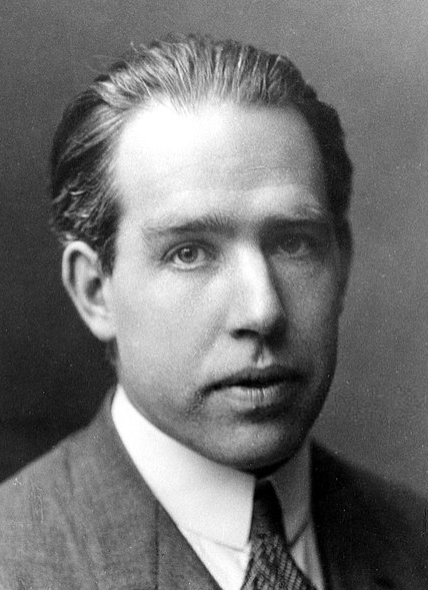
The only people who do not struggle with mathematics are those who don’t use it. As aspiring physicists advance through their undergraduate studies, they face increasingly difficult levels of mathematics, moving through calculus, linear algebra and different domains of geometry. As they transition into graduate work, depending on their field of interest, they will require a deeper understanding of branches of mathematics such as matrix and tensor algebra, differential equation techniques, differential geometry, statistics and perhaps even algebraic geometry.
In particular, research in theoretical physics requires an extremely high level of intelligence where neural efficiency, short term memory, and pattern recognition come into play–qualities possessed by only a small number of gifted people. But even at these levels, the greatest minds struggle with mathematics because it requires, in addition to these special neural qualities, a prolonged focus on the abstract thought.
John von Neumann, one of the intellectual giants of the 20th century, once asserted to a struggling student, “Young man, in mathematics, you don’t understand things, you just get used to them.” Einstein, whose field equation was described as “one of the greatest achievements of human thought” admitted to a struggling student, “Do not worry about your difficulties in mathematics. I can assure you mine are still greater.” When attempting to express his field equation in terms of tensors, Einstein had to seek help from a former classmate Marcel Grossmann.
The great physicist, Paul Ehrenfest, who collaborated with Einstein and found a contradiction in the equivalence principle, committed suicide because he felt he could no longer understand with enough clarity, the new abstract formulations of the general theory and quantum physics. As theoretical physics investigated topics more remote from human experience (such as subatomic particle behavior) it became more abstract and dependent upon mathematical modelling. Those physicists who lacked a strong knowledge of mathematics found themselves struggling to interpret mathematical formulations. In Too Big for a Single Mind, author Tobias Hürter writes (p. 50):
For a physicist of world standing, [Niels] Bohr is a remarkably poor mathematician. Even a cursory glance at his research papers reveals how few mathematical equations they include.
Deductive reasoning has enabled the theoretical physicist to model our universe with mathematical equations, enabling us to understand and predict natural phenomena, discover the weird world of quantum behavior, and harness nuclear energy. However, deep, deductive mathematical reasoning requires great effort and concentration. It also exerts a heavy load on short-term memory and demands full attention with single-minded focus. Great mathematicians like Henri Poincaré and G. H. Hardy explained that they attempted no more than four hours a day of intense work. After that time, staying focused becomes increasingly difficult. We do not yet know why deductive reasoning is so cognitively demanding though some neurologists suggest it may be connected to the depletion of glucose in the brain.
Theoretical physicists who wish to work on the frontiers of physics must invest hundreds of hours in learning the notations and operations that underpin mathematical techniques and formulations. This demands high-intensity focus and single-minded dedication. Since it is not always clear what mathematical techniques will come into play, the physicist is faced with learning a lot of mathematics that he or she might not need. This is one of the most frustrating aspects of applying mathematics to physics. Einstein wrote to a colleague, “At a very early age, I made an assumption that a successful physicist only needs to know elementary mathematics. At a later time, with great regret, I realized that the assumption of mine was completely wrong.”
Einstein’s biographer Walter Isaacson notes:
In his younger days, Einstein sometimes disparaged the role that pure math could play. But during his final push toward a general theory of relativity, it was the mathematical approach that ended up putting him across the goal line.
Indeed, since learning a great deal of mathematics at the advanced level is vital for a theoretical physicist, the frustrations in harnessing the brain to the task is worth the effort.
